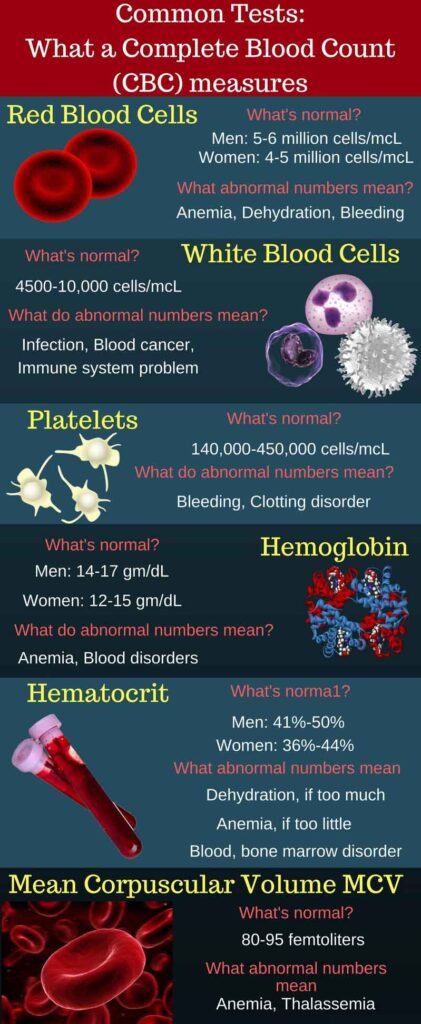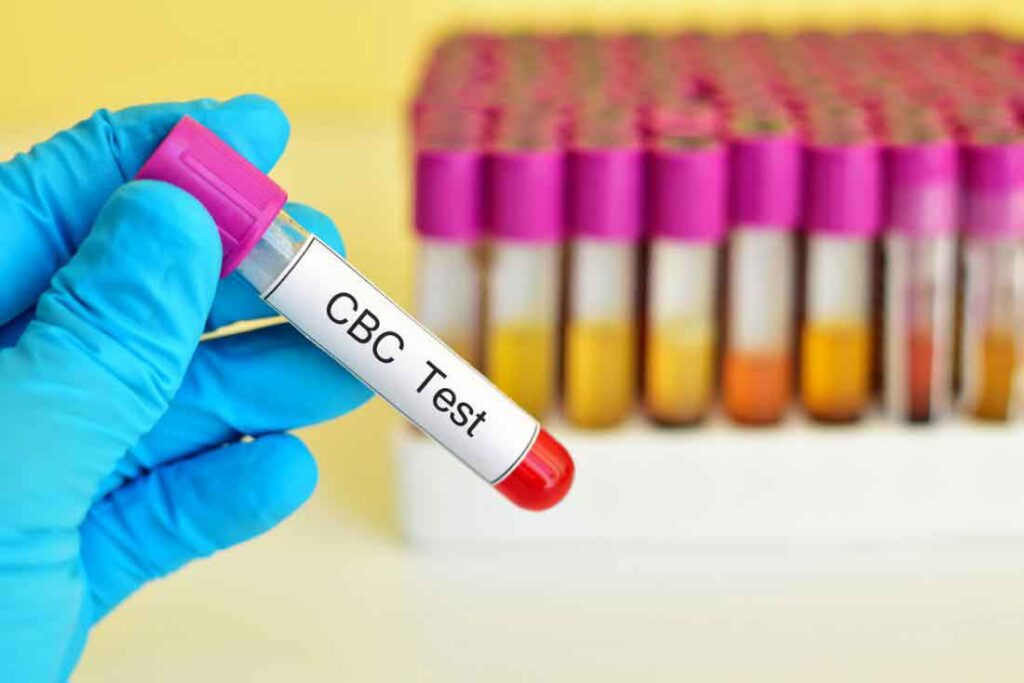
Complete Blood Count (CBC) Tests : Why is it important?
Doctors run various tests to diagnose your illness before starting the treatment. The most common among these tests are complete blood count (CBC), which is a blood test. It gives your primary care physician (PCP) data about your blood and by and overall health. CBCs help the PCP providers with diagnosing, monitoring, and screening for a large number of diseases, conditions, disorders, and infections. Your provider takes a sample of blood and your lab results are generally prepared within a couple of days.
What is a Complete Blood Count (CBC) Test?
A complete blood count (CBC) is a type of blood test. It assists healthcare providers with distinguishing a scope of issues and conditions. It likewise checks your blood for indications of medicine’s secondary effects. Providers utilize this test to evaluate for illnesses and change medicines.
A complete blood count measures and counts your blood cells. Your primary care physician requires a sample of your blood and sends it to a lab for further investigation. The lab does a series of tests to assess your blood cells. These tests assist your provider with checking your health.
A complete blood count (CBC) is a blood test used to evaluate your overall health and diagnose many problems, including anemia, leukemia, and any infection. A complete blood count test estimates several components and elements of your blood, including :
- Red blood cells carry oxygen.
- White blood cells fight contamination.
- Hemoglobin is the oxygen-carrying protein in red blood cells.
- Hematocrit is the proportion of red blood cells to the liquid part, or plasma, in your blood.
- Platelets, assist with blood clotting.
Abnormal increments or diminishes in the cell including as uncovered in a complete blood count might show that you have an underlying medical condition that calls for additional evaluation.

Why do Doctors need CBC tests?
Your primary care physician might arrange a CBC as a component of a routine exam or on the other hand if you have unexplained symptoms like bleeding or bruising. A CBC can assist your PCP with doing the accompanying. A complete blood count is a typical blood test that is finished for various reasons :
- To review your overall health : Your primary care physician might suggest complete blood consider part of a routine medical assessment to screen your overall health and to screen for different issues, like anemia or leukemia.
- To diagnose a medical condition : Your PCP might propose a complete blood count on the off chance that you’re experiencing weakness, fatigue, fever, inflammation, bruising, or bleeding. A complete blood count might assist with diagnosing the reason for these signs and symptoms. If your PCP suspects you have a disease, the test can likewise assist with affirming that diagnosis.
- To monitor a medical condition : If your PCH has been diagnosed with a blood disorder affecting the blood cell counts, complete blood counts help to monitor your condition.
- To monitor medical treatment : A complete blood count might be utilized to monitor your health on the off chance that you’re taking medications that might influence blood cell counts.
Some of the common symptoms that doctor recognizes before ordering a CBC test include :
- Bruising or bleeding.
- Fatigue, dizziness, or weakness.
- Fever, nausea, and vomiting.
- Inflammation (swelling and irritation) anywhere in the body.
- Joint pain.
- Problems with heart rate or blood pressure.

What happens during a CBC?
During a CBC, a lab technician will draw blood from a vein, regularly from within your elbow or from the rear of your hand. The test will require a couple of moments. The technician :
- Sterilize your skin with an antiseptic.
- Places a tourniquet or an elastic band, or, around your upper arm to help the vein swell with blood.
- Pricks your vein with a sterilized needle and collect a blood sample in one or more vials.
- Removes the elastic band.
- Secures the exposed area with a bandage to stop any further bleeding.
- Label your sample and send it to a lab for analysis.
A blood test can be marginally awkward. At the point when the needle penetrates your skin, you could feel a prick or squeezing sensation. Certain individuals additionally feel weak or discombobulated when they see blood. Subsequently, you might have minor bruising, however, it will clear up within a couple of days. Most CBC results are available within a couple of hours to a day in the wake of testing.
For infants
In infants, a medical caretaker (nurse) will commonly sanitize the impact point of the foot and utilize a little needle called a lancet to prick the region. The medical caretaker will then, at that point, tenderly press the heel and gather a limited quantity of blood in a vial for testing.
When should I know the results of the test?
Results are typically prepared within a couple of days. However, sometimes it just requires 24 hours for the results to be ready. Your provider will reach you to make sense of the results and talk about the following stages. Assuming your blood cell counts are beyond the normal range, your provider might arrange follow-up tests.

What are the normal ranges for a complete blood count?
Hemoglobin normal range :
- Male (ages 15+): 13.0 – 17.0 g/dL
- Female (ages 15+): 11.5 – 15.5 g/dL
Hematocrit normal range :
- Male: 40 – 55%
- Female: 36 – 48%
Platelet Count normal range : Adult : 150,000 – 400,000/mL
White blood cell (WBC) normal range : Adult: 5,000-10,000/mL
What does a CBC detect?
A CBC blood test can assist your provider with diagnosing many primary and urgent health issues, sicknesses, and diseases, including :
- Anemia : Red blood cells are unable to carry enough oxygen through the body.
- Bone marrow disorders, like myelodysplastic syndromes.
- Disorders like agranulocytosis, thalassemias, and sickle cell anemia.
- Infections that cause abnormally low white blood cell count or high white blood cell count.
- Several types of cancer, such as leukemia and lymphoma.
- Side effects of chemotherapy and some of the prescription medications.
- Vitamin and mineral deficiencies.
What are the benefits of this test?
A CBC provides your provider with an image of your general health. Utilizing a limited quantity of blood, a CBC can assist with distinguishing many circumstances, issues, and diseases. It permits your provider to monitor your health, screen for illness, and plan and change treatment. A CBC is a protected, normal test. There are no risks implied, and your provider just removes a modest quantity of blood. Rarely, do certain individuals feel a little weak or tipsy after a CBC.
Outlook
Healthcare providers utilize complete blood builds to oversee infection and assist you with remaining healthy. With one sample of blood, CBCs can help screen for many problems, conditions, and diseases. A CBC can identify conditions early, in some cases before you have symptoms, so treatment can begin at the earliest opportunity. CBCs are a fundamental device in keeping up with great overall health.
Texas Speciality Care has a state-of-the-art medical laboratory to quickly diagnose any serious and chronic medical conditions. We are known for our professional and dedicated services and our center ensures timely, cost-effective, and high-quality diagnostic care.
Call us at (469) 545-9983 to book a telehealth appointment for a home check-up.

